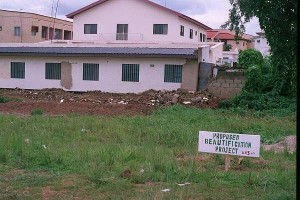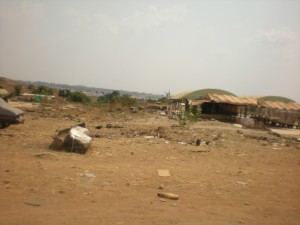Uganda is currently preparing for national elections in 2011. The contest presents an important challenge to the National Resistance Movement (NRM), in power since Yoweri Museveni overthrew the government in 1986. But Uganda has emerged as the quintessential semi-authoritarian regime, with the government organizing elections while it centralizes authority, closes political space, and makes gestures of openness to the international community. Museveni established a government officially without parties until a national referendum opened up the political process in 2005. Until then the NRM artfully considered itself a movement, rather than a political party, in order to doge electoral stipulations. Aili Mari Tripp details the architecture and strategy of the “hybrid regime” in her excellent new book, Museveni’s Uganda, published in summer 2010 by Lynne Rienner.
The ruling NRM has cleverly adopted the Global War on Terrorism as a political resource. Even before the terrorist bombing in the capital in July 2010, the government began closing political space in the name of national security while it successfully obtained aid commitments from the United States to fight counter-insurgency wars, one of which is against the brutal Lord’s Resistance Army (LRA) in the north.
In May 2010 President Obama signed “The ‘Lord’s Resistance Army Disarmament and Northern Uganda Recovery Act of 2009” into law (Public Law No: 111-172). The Act states that the United States will provide “political, economic, military, and intelligence support for viable multilateral efforts to protect civilians from the Lord’s Resistance Army” in addition to providing humanitarian assistance to communities affected by the Lord’s Resistance Army, and continuing to support Uganda’s government. It designates $10 million from the 2011-2013 fiscal budgets to carry out these activities. It also gave the White House 180 days to formulate a strategy to end the LRA’s brutal violence. The NGO Resolve Uganda is counting down the remaining days on its website.
The problem is that the Ugandan government’s recent offensive against the LRA, Operation Lightning Thunder, backfired in the worst ways. The Ugandan military has an interest in portraying the operation as a counter-terrorism success, and activists are rightfully concerned about the LRA’s brutal campaign of terror and recruitment of child soldiers see an American commitment as key to a solution. But as the New York Times reported last year, the U.S. helped plan and pay for an attack that resulted in over 900 civilian deaths. A series of articles by Ronald Atinkson in the London Independent further claimed that successes against the LRA had been exaggerated.
The difficulty of reconciling the forces of democratization with the country’s national security state was the subject of a letter that a dozen advocacy organizations sent to Secretary of State Hillary Rodham Clinton. Chief among their concerns is the danger that the U.S. will continue to provide security assistance without due consideration for human rights abuses being carried out by government forces. Assistance currently includes International Military Education and Training (IMET) and some modest Foreign Military Financing. Research by Human Rights Watch raises concerns about whether U.S. aid is in compliance with the Leahy Amendment, which prohibits assistance to individuals with a record of human rights abuses. Ugandan and international activists are profoundly concerned about abuses by counter-terrorism units such as the Joint Anti-Terrorism Task Force (JATT), some of its former directors have received U.S. training.
Even if human rights protections are put in place, they are often easily circumvented by simply renaming the program, a practice I detailed in my 2005 book, In Democracy’s Shadow based on my Capitol Hill oversight experience.
Exporting the Worst of the PATRIOT Act?
The unfortunate truth for now is that the Ugandan government has effectively leveraged its fight against terrorism to grant itself broad authorities, which the NRM is using to its political advantage. The government passed sweeping legislation in 2007 authorizing government eavesdropping, describing the Interception of Communications bill as an effort to fight crime and terrorism in the country. The law gives the security minister the broad latitude to establish a Monitoring Center and to intercept communications throughout Uganda. Through the receipt of a mere verbal request from a government institution, the government can intercept communications if there are “reasonable grounds” to believe:
- a felony has been or will probably be committed;
- the gathering of information concerning an actual threat to national security or any national economic interest is necessary;
- the gathering of information concerning a potential threat to public safety, national security, or any national interest is necessary;
- or there is a threat to the national interest involving the state’s international relations or obligations.
The legislation comes at a time when the Ugandan government is using this kind of broad authority to intimidate journalists and undermine government critics, thus making open competition in next year’s elections even more difficult than it already is. As the July letter from US-based advocacy organizations argued, the bill is a sign that the government of Uganda will “further backslide on civil liberties and human rights obligations while using the bombings and the fight against terrorism as a shield from scrutiny.”
Development Slippage
Looking beyond the Pentagon, Washington is clearly aware of Uganda’s governance drift. For example the US announced that will not renew 10 million dollars committed through Millennium Challenge Corporation to help Uganda move from “threshold” status to a full compact (ie, an agreement) for aid. USAID’s plans call for strengthening democratic institutions, enhancing political competition, and improving parliamentary capacity for oversight through partnerships with civil society. Unfortunately USAID faces an uphill battle, with no increases in the lines funding for either for civil society programs or for its good governance in Uganda, and cuts are planned for programs relating to “political competition and consensus building.” Even aid to fight transnational crime is slated for cuts.
Whatever Uganda policy the Obama administration lays out this fall needs to put securitization back in the context of democratization. Neither peace nor good governance will be feasible without a strong commitment to accountability which extends to America’s straying allies in the war on terror.

